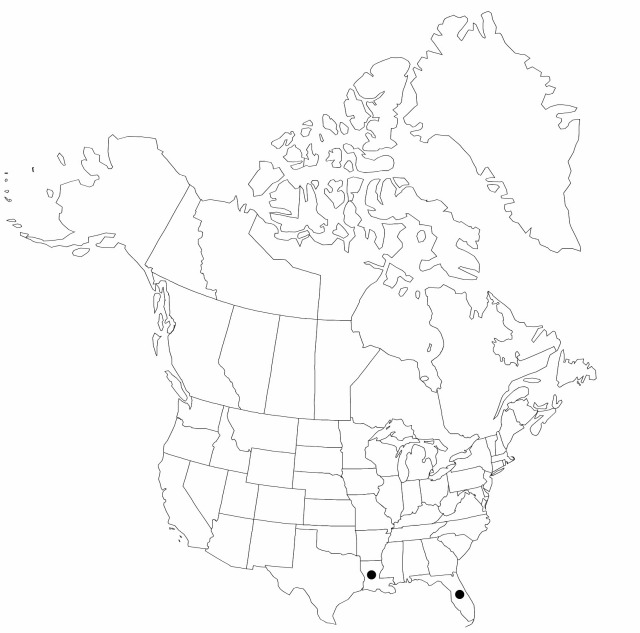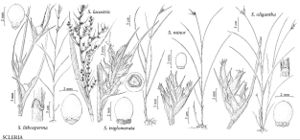Scleria lithosperma
Prodr., 18. 1788.
Plants perennial; rhizomes short, nodulose, aromatic when fresh. Culms in tufts, slender, 30–90(–115) cm, glabrous or slightly scabrous. Leaves: sheaths purplish, wingless, weakly ribbed, finely pilose or nearly glabrous; contra-ligules reddish, triangular, rigid, distinctly ciliate; blades distinctly grayish green and revolute when dry, linear, attenuate, keeled, 1–3(–5) mm wide, shorter than culms. Inflorescences: axillary 1–3, terminal 1, quite lax; stalked spikes or panicles 2–4, terminal one 3–4.5(–8.5) cm with 2–7 open fascicles 2–6(–9) mm wide, of 1–4 spikelets; bracts subtending and overtopping inflorescence leaflike, broadly attenuate, scabrous. Spikelets bisexual (an occasional terminal staminate spikelet), few flowered, 3–5 mm; staminate scales lanceolate, pistillate scales ovate-acuminate, with prominent green keel. Achenes whitish or gray between angles, obscurely trigonous, ovoid or globose, 2–2.5(–3) mm, smooth, base broadly attenuate, somewhat depressed between angles, trigonous, not porose, apex umbonate; hypogynium obsolete, reduced to distinct brown band at base of achene.
Phenology: Fruiting spring–fall.
Habitat: Dry thickets, open woods, hammocks, restricted to limestone soils
Elevation: 0 m
Distribution

Fla., La., Mexico, West Indies, Central America, South America, tropical Asia, Africa.
Discussion
Selected References
None.
